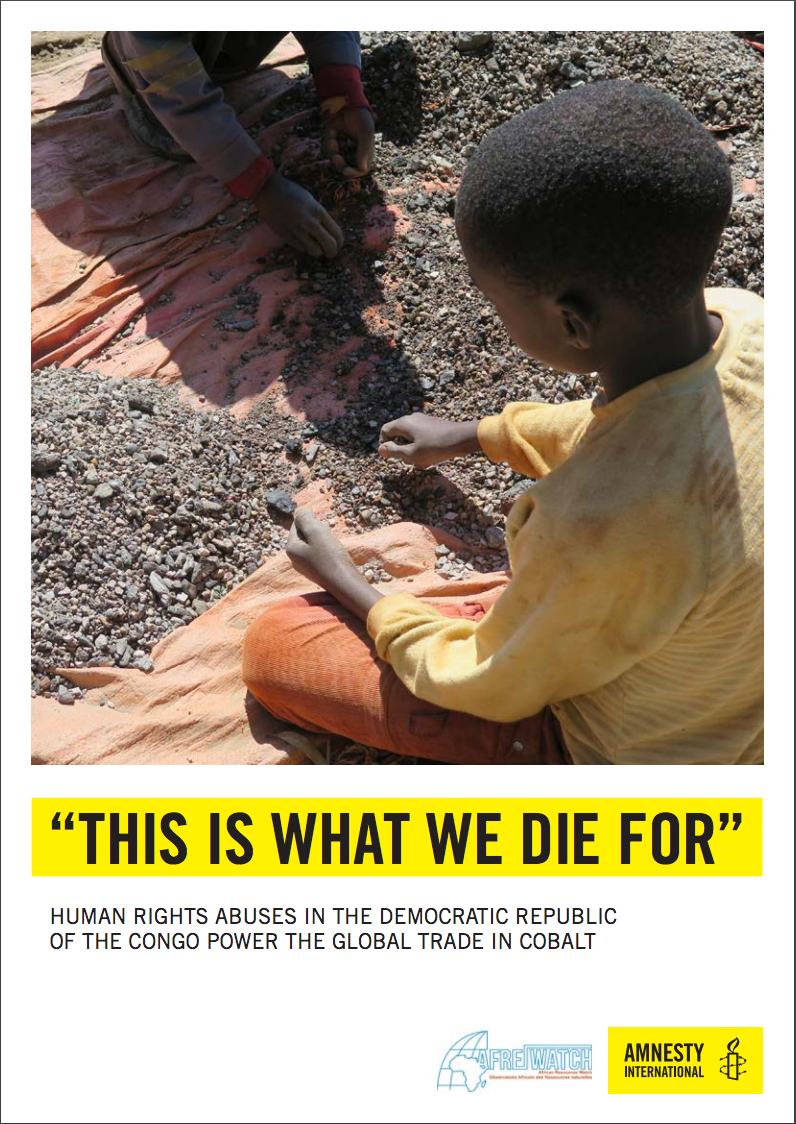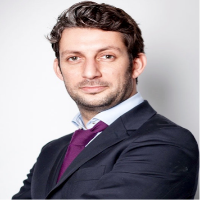Chemycal has been acquired by 3E
Learn MoreChemycal has been acquired by 3E
Learn MoreDiscover how Chemycal PRO helps you boosting your regulatory monitoring:

Amnesty international and African Resources Watch published on January 19 an excellent report depicting how Chinese traders are buying cobalt mined by exploited children in small scale artisanal mines.
According to Amnesty, this report is the first comprehensive account of how cobalt enters the supply chain of many of the world’s leading brands. As the reports states the cobalt smelted in Chinese refineries is then allegedly sold to battery makers who claim to supply companies including Apple, Microsoft, Vodafone, Lenovo etc…
So what lessons can be learnt for the industry and policy makers from the publication of this report?
* 1st * Relying on advice that a narrow focus on just tin, tantalum, tungsten and gold coming from the Eastern DRC was somehow going to prevent the inclusion of other metals and other regions in the definition of conflict minerals was misplaced. Other players in the global metals supply chain should have looked at the terrific work done by the World Gold Council’s Conflict Free Gold Standard published in 2012 as an industry benchmark, and not hoped that the reputational harm caused to those producing the 3T’s and gold wouldn’t happen to them.
* 2nd * Upstream cobalt producers operating in the developing world should come out clearly in support of the OECD rules on supply chain management. For companies like Freeport McMoran, Glencore, Vale, Sherritt and Sumitomo - who operate in both the developing and developed world - this report should be seized upon as way of distinguishing their approach to sustainable mining from those who are relying on children to produce their profits.
* 3rd * The definition of conflict minerals captured by the EU’s proposed regulation should be broadened to include cobalt produced by children in the DRC and elsewhere. In addition, the EU should work with upstream producers and local communities to ensure that the sustainable economic development benefits of mining are shared more equitably by those ASM miners who could lose out from adding cobalt to the conflict list.
* 4th * European downstream users of cobalt containing products need not wait for changes to the EU’s conflict minerals regulation before taking actions on ensuring the integrity of their supply chains and that child labour is not contributing to their bottom lines. The EU’s Non-Financial Disclosure Directive is now in effect which means large private and publicly listed companies in the EU must report in 2017 on environmental, human rights and corruption-related risks - and how they are being managed - throughout their operations, including supply chains.
Amnesty International has drawn the world’s attention to an important issue. It is now up to responsible global mining and refining companies to highlight their positive contributions to sustainable economic development in the developing world, and that they alone should be seen as a trusted source of essential raw materials in today’s global metals supply chain.
Author:

Julien is co-founder of Atlantic Strategy Group, a consultancy specialized in overcoming political and regulatory risks. His expertise in risk management for the extractive sector led him to work for metal producers on REACH, where he successfully prevented an authorisation recommendation made by ECHA to go forward. Following this, he worked for a coalition of chemical and metal producers to improve the REACH decision-making process especially to take into account at an early stage the socio economic impact assessment before ECHA renders a decision. Building on its expertise, Atlantic Strategy Group is contributing to the European Commission’s ad hoc experts group in charge of reviewing the methodology to assess the list of critical raw materials (CRM).
Julien has more than 10 years experience in public affairs advising companies on trade related issues, from anti dumping cases to trade negotiation; Competition cases; and leading advocacy campaigns on regulations covering Energy, Health and ICT where he worked for 4 years for an multinational telecommunications services company. Julien is a visiting lecturer in EU Affairs and Risk Management at Sciences Po Bordeaux, and has a post-graduate diploma in public affairs from Sciences Po Bordeaux, France and Laval University, Canada.
Follow Julien:
2013 © MyChemicalMonitoring. ALL Rights Reserved. About Us | Terms and Conditions